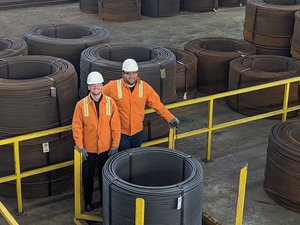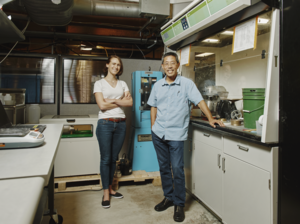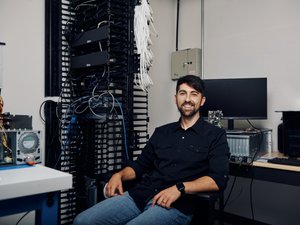Imagine walking through a neighborhood and, once you pass by a certain building, you suddenly get a push notification: “Your grandmother lived in this apartment from 1953 to 1955,” the notification tells you, and it goes into more detail about what she was like when she lived there.
It was a detail about your late grandmother you never knew about, but it came up on your phone because your father had once entered the detail into an online platform that collects memories of the dead for anyone to see.
"I just got to this point of saying, ‘there has to be a better way to memorialize.'"
This is part of the vision for Boston entrepreneur and investor Dave Balter and his new startup Mylestoned, which is building a solution to the problem of people losing memories and stories of their loved ones who have passed away by creating a collaborative platform that will store all of them—forever.
On Monday, the startup announced that it had raised a $1.5 million seed round led by Founder Collective, Boston Seed Capital, Converge Venture Partners and a few angel investors, including Joe Caruso.
Balter told BostInno he first thought of the idea after noticing over several flights between New York and Boston that the graveyards he could spot from his seat hardly ever had anyone visiting them. The topics of death and memorialization began to fascinate him, so he started doing research into rising rate of cremations, the projected sharp rise in the baby-boomer mortality rate and trends of people moving farther away from their loved ones.
“I just got to this point of saying, ‘there has to be a better way to memorialize,’” says Balter, who has had successful exits with the sale of two companies he previously led and co-founded, BzzAgent and Smarterer.
The mission of Mylestoned, which has joined Boston startup CAKE and others in the emerging deathtech sector, is “to reframe death through the transformation and discovery of dynamic, meaningful digital memories.”
“We have a 50-year plan for this company,” Balter says, which isn’t something you usually hear a startup founder say when they are just starting out. But because Mylestoned is trying to attack the large problem of finding a better way to honor and memorialize the dead, Balter says the company needed to have a vision of what it would look like decades from now.
The vision of the future, Balter says, includes being able to look at a photo of anyone and learn who they were and what kind of impact they had on the world. Balter also talks about how virtual and augmented reality could eventually play a part in how the startup’s platform works.
Memories collected via Mylestoned, Balter says, could eventually be activated by location, dates or events so that memories of a person are no longer lost or buried in an old obituary or scrapbook.
"We’re building a way to capture the spirits and impacts of loved ones so they can be discoverable by anyone at any time."
Balter knows he’s working on a very ambitious and risky idea with Mylestoned, and that the stakes are high, given that he wants to build something that will store the memories of people forever. But he says “the things that really impact the world are really far out,” like Elon Musk's goal of colonizing Mars.
Mylestoned is starting out with a text bot named “Mylie” that’s working now and lets you add memories of a person to the startup’s platform. As an example, the startup let me text with Mylie to add my own memory of the late Leonard Nimoy, who played Spock in the original “Star Trek” series.
After adding my memory, Mylie prompted me to view all of the submitted memories of Nimoy on Mylestoned’s web app. Each memory was presented through a clean, simple interface that lets you focus on a sentence or two.
But as Balter told me, this is only the beginning.
“We’re not building a text bot and we’re not building a digital tool to show peoples' memories,” Balter says. “We’re building a way to capture the spirits and impacts of loved ones so they can be discoverable by anyone at any time.”
Balter says the seed round provides the startup with about 73 weeks of cash to prototype the technology.
“I would say we have this much cash and we need to prove value before that cash runs out,” he says.








